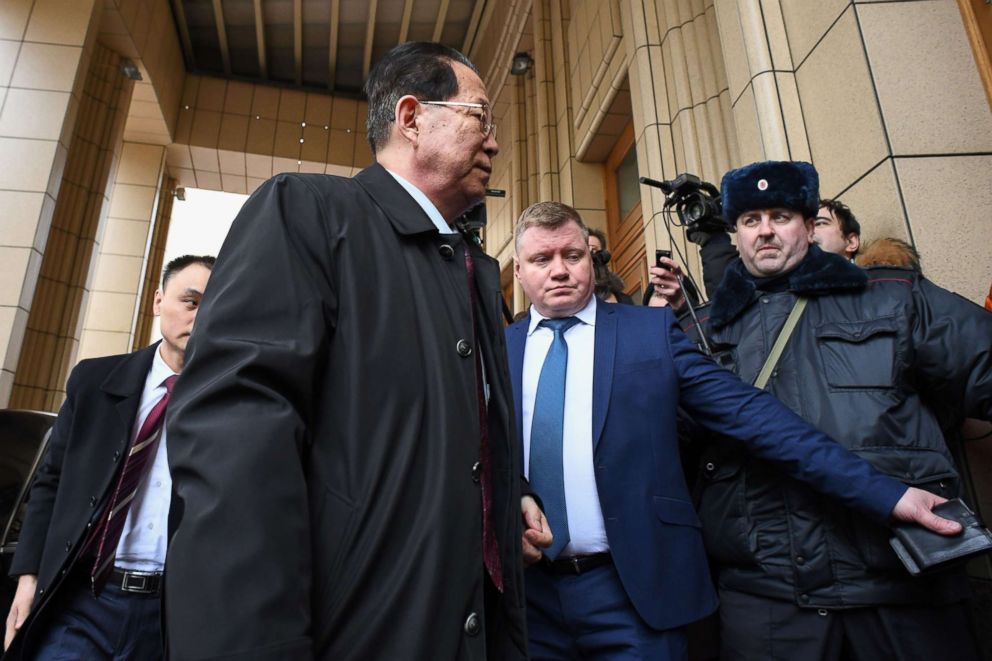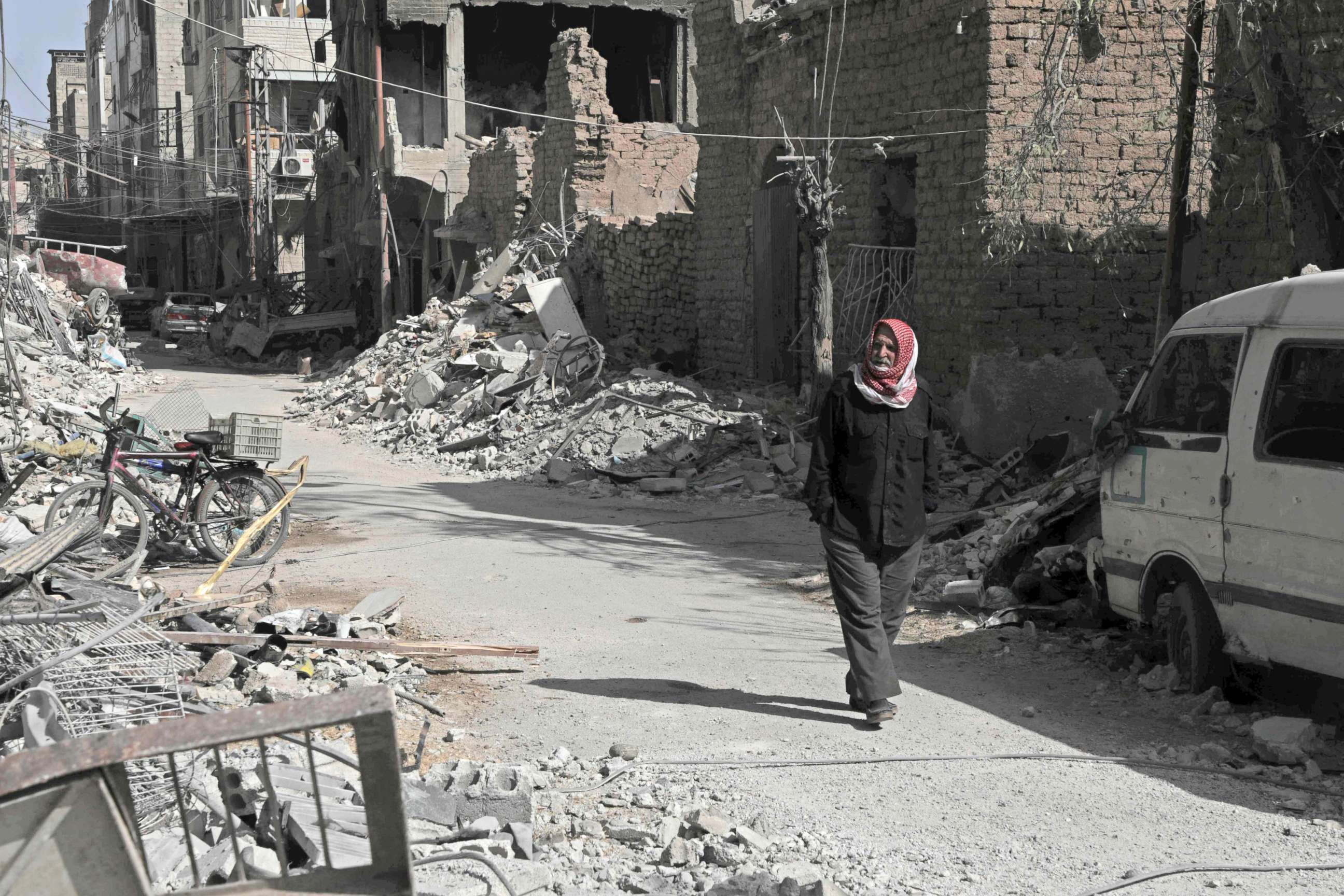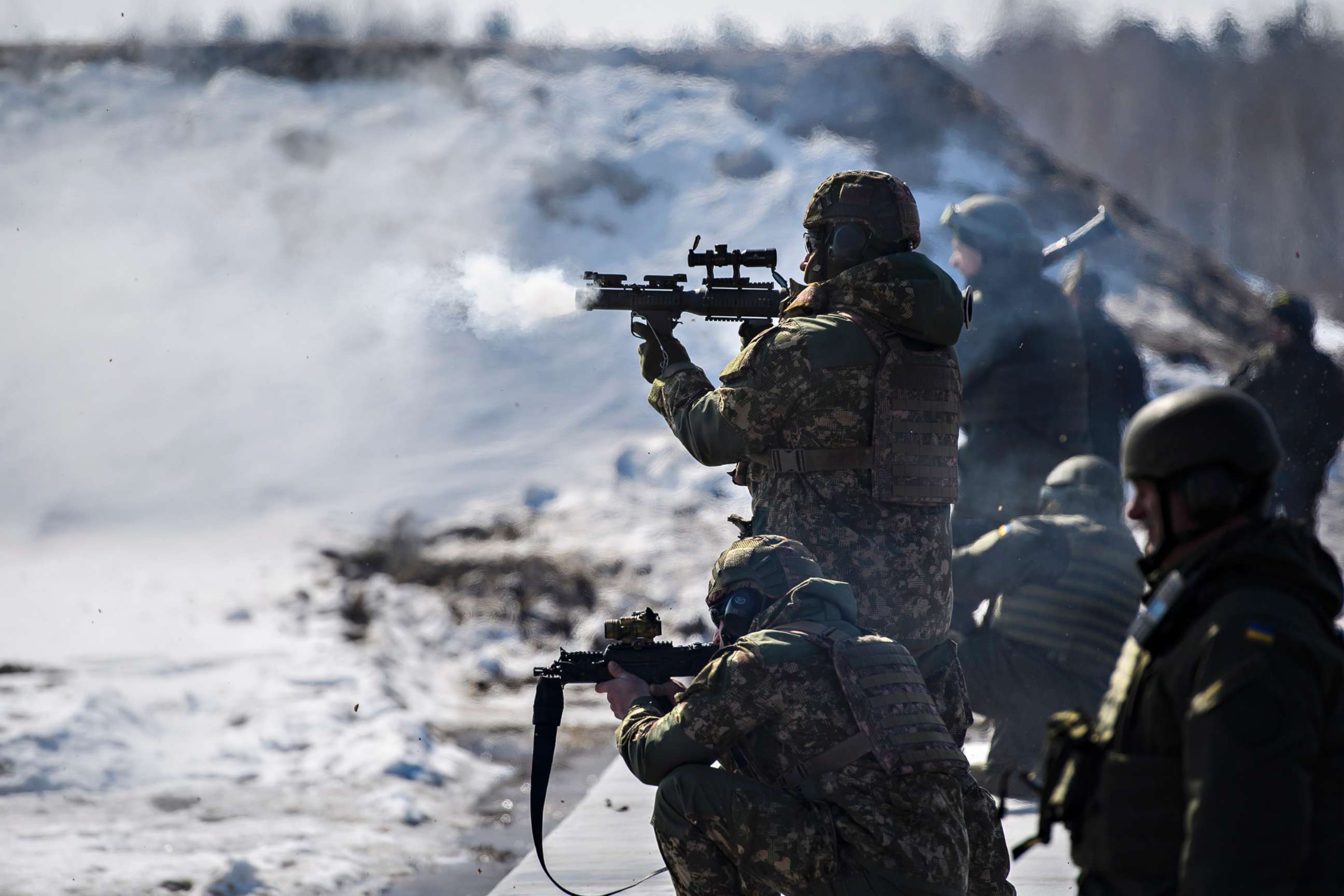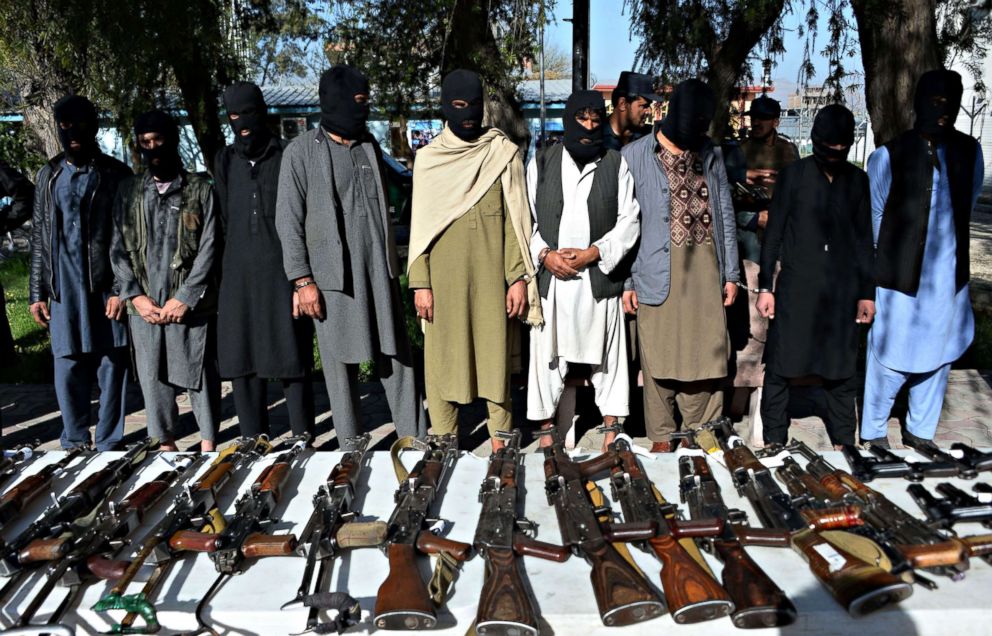Trump wants to work with Putin despite US accusing Russia of meddling worldwide
Ambassador Nikki Haley Tuesday blasted Russia for its actions in Syria.
President Donald Trump took some of his strongest action yet against Russia with Monday's expulsion of what the U.S. says are 60 Russian intelligence operatives - retaliation for the alleged poisoning of a former Russian spy and his daughter in the United Kingdom.
But the president continues to hold out hope for personally working with Russian President Vladimir Putin, even congratulating the strongman leader on his "re-election" last week and calling for cooperation on "shared interests" like North Korea, Ukraine, and Syria.
"They can help solve problems with North Korea, Syria, Ukraine, ISIS, Iran and even the coming Arms Race," Trump tweeted last Wednesday.
At every turn, however, Russia appears to be blocking U.S. interests, and it's Trump's own top officials pointing out that Russia has created crises around the world or made existing ones worse.
"Russia has chosen to be a strategic competitor, even to the point of reckless behavior," Defense Secretary James Mattis told reporters Tuesday.
Despite calls from the White House for Russia to change its behavior, Trump's persistent push to work with Putin has led critics to doubt his commitment to defending American interests against Russian interference from Afghanistan to Ukraine, the Korean peninsula to western Europe.
North Korea
In North Korea, for example, Russia is hindering the administration's global pressure campaign to isolate the regime and force it to give up its nuclear weapons in negotiations, according to Trump's top diplomat for Europe.
"The Russian government has not been helpful in recent days with the United States, with the international community and our efforts with North Korea," Assistant Secretary of State for European and Eurasian Affairs A. Wess Mitchell told Fox News Monday. One of the few senior Trump appointees at the State Department, Mitchell said it was part of a "pattern of Russian aggressive behavior worldwide."

"We see the situation in Ukraine and in Syria, Russian meddling in multiple countries, undermining Western institutions," he added.
Mitchell didn't share more details about how Russia was "not helpful," and State Department spokesperson Heather Nauert declined to elaborate Tuesday, but in January, Secretary of State Rex Tillerson said specifically that the country has violated United Nations sanctions, especially on fuel shipments to Kim Jong Un's regime.
Syria
Tuesday morning at the U.N. Security Council, Trump's U.S. ambassador, Nikki Haley, also blasted Russia for its intervention in Syria, where it and Iran's "forces working alongside Assad... [are] responsible for this slaughter" of civilians in a rebel stronghold east of Damascus. The U.N. had voted one month ago for a cessation of hostilities in the area called eastern Ghouta – a ceasefire that never came.
"Russia cynically negotiated a ceasefire it instantly defied," Haley said, adding it "will stop at nothing to use its permanent seat on this Council to shield its ally Bashar Al-Assad from even the faintest criticism."

After months of continued bombardment by Russia and Assad – and repeated calls for it to end by the U.S. – eastern Ghouta has now been largely retaken by Assad's forces and civilians are being bused out.
While Trump wants to work with Putin against ISIS, Haley noted that the two countries can't even agree on which groups are terrorists in Syria, saying Russia's claim that they have "to combat what they call 'terrorists'" in eastern Ghouta "is a transparent excuse for the Russians and Assad to maintain their assault."
There has been one area of cooperation in Syria, though. Last week, Russian mercenaries in Syria pulled back from a position near U.S. troops – and a possible confrontation – after successful discussions between Chairman of the Joint Chiefs of Staff Gen. Joseph Dunford and his Russian counterpart, Gen. Valery Gerasimov. In a similar incident in February, armed groups that included Russian mercenaries opened fire against U.S. forces in the same area, leading to an American response that killed at least "dozens" of Russians.
Ukraine
Nowhere is Russia's position at greater odds with the U.S. than Ukraine, where Russia seized the Crimea peninsula and Russian-backed separatists have been battling U.S.-backed government forces for four years now. The Trump administration decided to increase its support for Ukraine in December, approving the sale of lethal weapons to the country for the first time.

While those anti-tank missiles are making their way to Ukraine, the U.S. has demanded that Russia stop arming separatists and return Crimea to Ukraine. Just last week, the top U.S. diplomat to the Organization for Security and Cooperation in Europe, or OSCE, which monitors the conflict, blasted "Russia’s campaign of violence, intimidation, violations of international law, and defiance of OSCE commitments."
With Russia responsible for the violence, it's unclear how the U.S. expects to work with them to end it.
Afghanistan
Even in Afghanistan, where the U.S. has spent nearly 17 years at war, Russia has begun poking at American interests.
The top U.S. commander there, Gen. John Nicholson, said days ago that Russia is supporting and even arming the Afghan Taliban, telling BBC News, "We know that the Russians are involved."

Russia has denied arming the Taliban, but Nicholson blasted them for "destabilizing activity" in Afghanistan that has increased in the last 18 to 24 months, saying it "roughly correlates to when things started to heat up in Syria."
The Trump administration has been pursuing a strategy to beat the Taliban on the battlefield, adding 3,500 more troops last year, and drive it to the negotiating table.
ABC News's Elizabeth McLaughlin contributed to this report.




